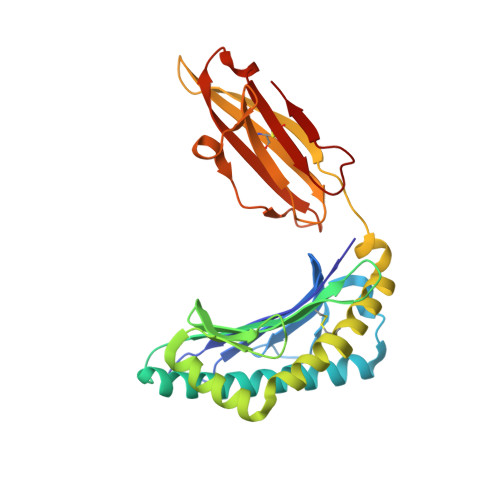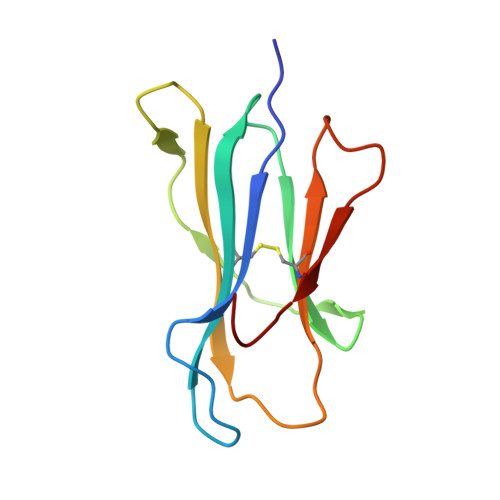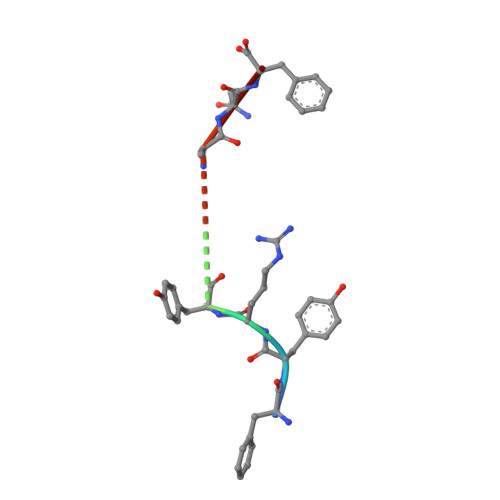Cross-Allele Cytotoxic T Lymphocyte Responses against 2009 Pandemic H1N1 Influenza A Virus among HLA-A24 and HLA-A3 Supertype-Positive Individuals.
Liu, J., Zhang, S., Tan, S., Yi, Y., Wu, B., Cao, B., Zhu, F., Wang, C., Wang, H., Qi, J., Gao, G.F.(2012) J Virol 86: 13281-13294
- PubMed: 23015716
- DOI: https://doi.org/10.1128/JVI.01841-12
- Primary Citation of Related Structures:
4F7M, 4F7P, 4F7T - PubMed Abstract:
Lack of a universal vaccine against all serotypes of influenza A viruses and recent progress on T cell-related vaccines against influenza A virus illuminate the important role of human leukocyte antigen (HLA)-restricted cytotoxic T lymphocytes (CTLs) in anti-influenza virus immunity. However, the diverse HLA alleles among humans complicate virus-specific cellular immunity research, and elucidation of cross-HLA allele T cell responses to influenza virus specificity requires further detailed work. An ideal CTL epitope-based vaccine would cover a broad spectrum of epitope antigens presented by most, if not all, of the HLAs. Here, we evaluated the 2009 pandemic influenza A (H1N1) virus-specific T cell responses among the HLA-A24(+) population using a rationally designed peptide pool during the 2009 pandemic. Unexpectedly, cross-HLA allele T cell responses against the influenza A virus peptides were detected among both HLA-A11(+) and HLA-A24(+) donors. Furthermore, we found cross-responses in the entire HLA-A3 supertype population (including HLA-A11, -A31, -A33, and -A30). The cross-allele antigenic peptides within the peptide pool were identified and characterized, and the crystal structures of the major histocompatibility complex (MHC)-peptide complexes were determined. The subsequent HLA-A24-defined cross-allele peptides recognized by the HLA-A11(+) population were shown to mildly bind to the HLA-A*1101 molecule. Together with the structural models, these results partially explain the cross-allele responses. Our findings elucidate the promiscuity of the cross-allele T cell responses against influenza A viruses and are beneficial for the development of a T cell epitope-based vaccine applied in a broader population.
- CAS Key Laboratory of Pathogenic Microbiology and Immunology, Institute of Microbiology, Chinese Academy of Sciences, Beijing, China.
Organizational Affiliation:


















